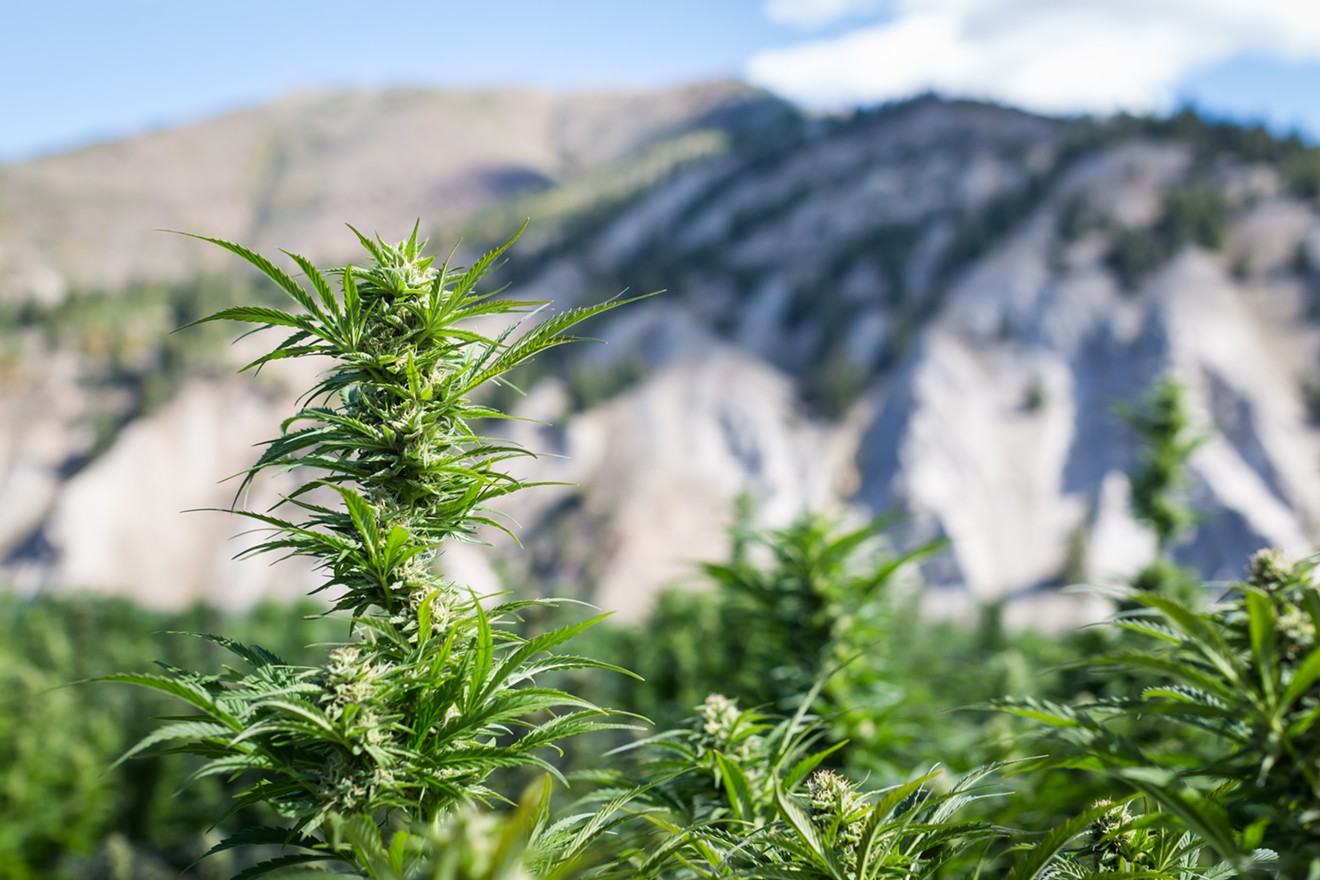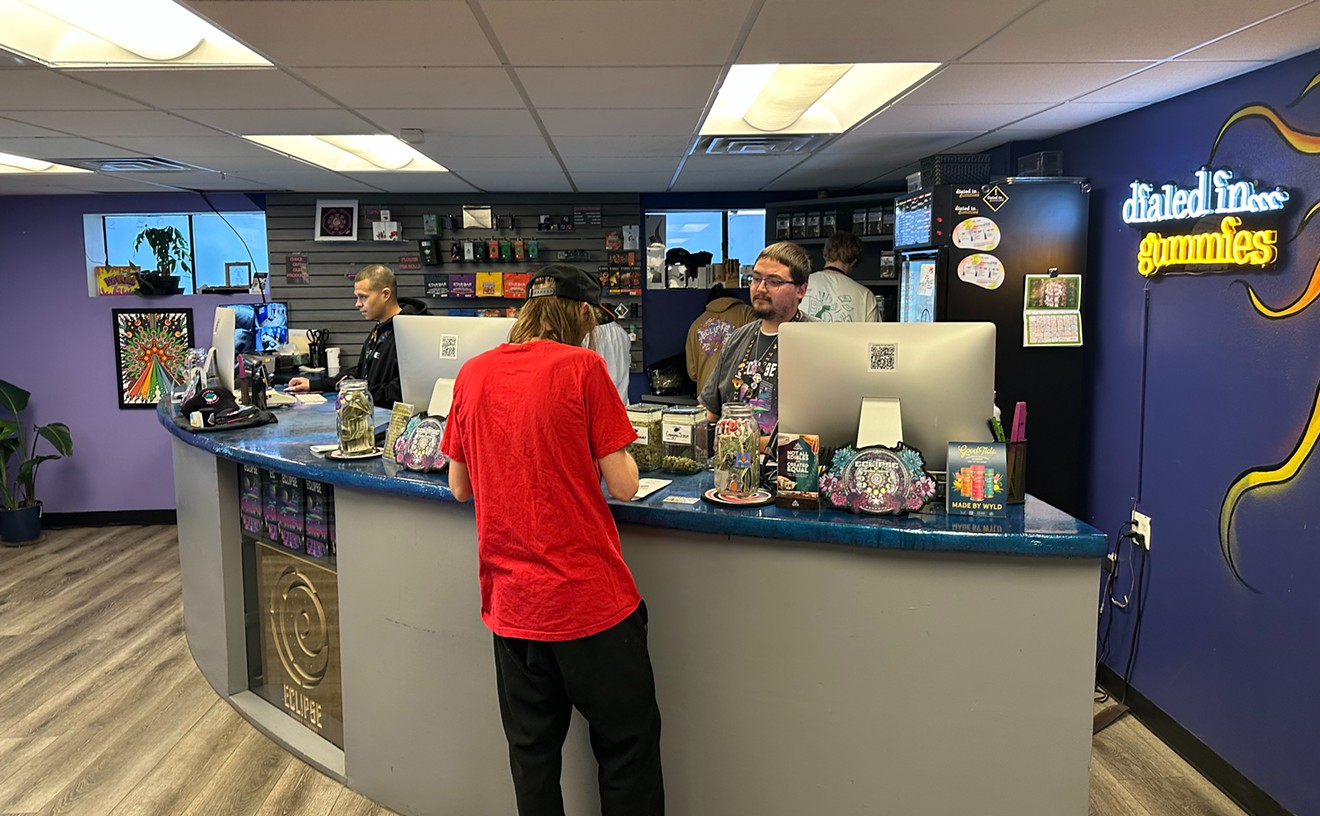Unlike fruits and vegetables at the supermarket, organically grown marijuana doesn't have labels announcing the clean growing practices used to produce it, because the plant is still federally prohibited. Tired of waiting for national acceptance, the Cannabis Certification Council, a Denver-based cannabis sustainability and fair trade organization, has announced its own organic certification process for legal marijuana growers.
According to CCC board chair Ben Gelt, applying for the program's organic certification is similar to applying for traditional organic growing certifications: After the CCC receives the application, third-party certifying entities will conduct inspections and audits for several months before deciding whether applicants become accredited.
Now that cannabis is legal in Colorado and many other states, Gelt says, growers need to take the next step and let consumers know what goes into the plant.
“The hope is that this will help bring clarity to consumers on what goes into their cannabis," he explains. “Marijuana was in the illicit market for so long that people haven’t been able to ask the question of if it’s actually organic. Suddenly, all these states have made it legal, and consumers feel a lot of joy about being able to have marijuana, but they don’t know what they’re looking at with cannabis quite yet, so certifications like this one clearly mark a product in a way that consumers know whether it’s organic or not.”
After getting feedback from members, the organization plans to officially launch the certification program by June, with different inspection programs for indoor, outdoor and greenhouse growing operations.
Amy Andrle, founding board member of the CCC and co-owner of Denver dispensary L’Eagle, believes that certification will allow cannabis businesses to differentiate their products from others on the market, and give consumers more defined choices. “The certification allows businesses differentiation in a saturated market,” she says. “It really highlights a different type of product — an organic one — and gives consumers more choices."
According to Andrle, the difference between organic and non-organic cannabis comes down to pesticides, nutrients and sustainable practices used during cultivation. Synthesized chemical fertilizers can increase growth production, for example, but are produced from non-renewable sources, and can possibly kill the cannabis plant via overfeeding.
“Cannabis isn’t like growing a vegetable,” Andrle notes. “We do it and consume it, but cannabis is also used in other ways, like smoking it.”
Despite the differences in consumption methods, Andrle and Gelt believe that shopping for cannabis products should be an experience similar to shopping for other products, such as food and drink, that can be produced organically.
“Consumers deserve choice,” Andrle says. “Just like you would go into a King Soopers and pick between organic and inorganic products, you should be able to pick between organic and conventional cannabis.”
[
{
"name": "Air - MediumRectangle - Inline Content - Mobile Display Size",
"component": "12017618",
"insertPoint": "2",
"requiredCountToDisplay": "2"
},{
"name": "Editor Picks",
"component": "17242653",
"insertPoint": "4",
"requiredCountToDisplay": "1"
},{
"name": "Inline Links",
"component": "18838239",
"insertPoint": "8th",
"startingPoint": 8,
"requiredCountToDisplay": "7",
"maxInsertions": 25
},{
"name": "Air - MediumRectangle - Combo - Inline Content",
"component": "17261320",
"insertPoint": "8th",
"startingPoint": 8,
"requiredCountToDisplay": "7",
"maxInsertions": 25
},{
"name": "Inline Links",
"component": "18838239",
"insertPoint": "8th",
"startingPoint": 12,
"requiredCountToDisplay": "11",
"maxInsertions": 25
},{
"name": "Air - Leaderboard Tower - Combo - Inline Content",
"component": "17261321",
"insertPoint": "8th",
"startingPoint": 12,
"requiredCountToDisplay": "11",
"maxInsertions": 25
}
]











